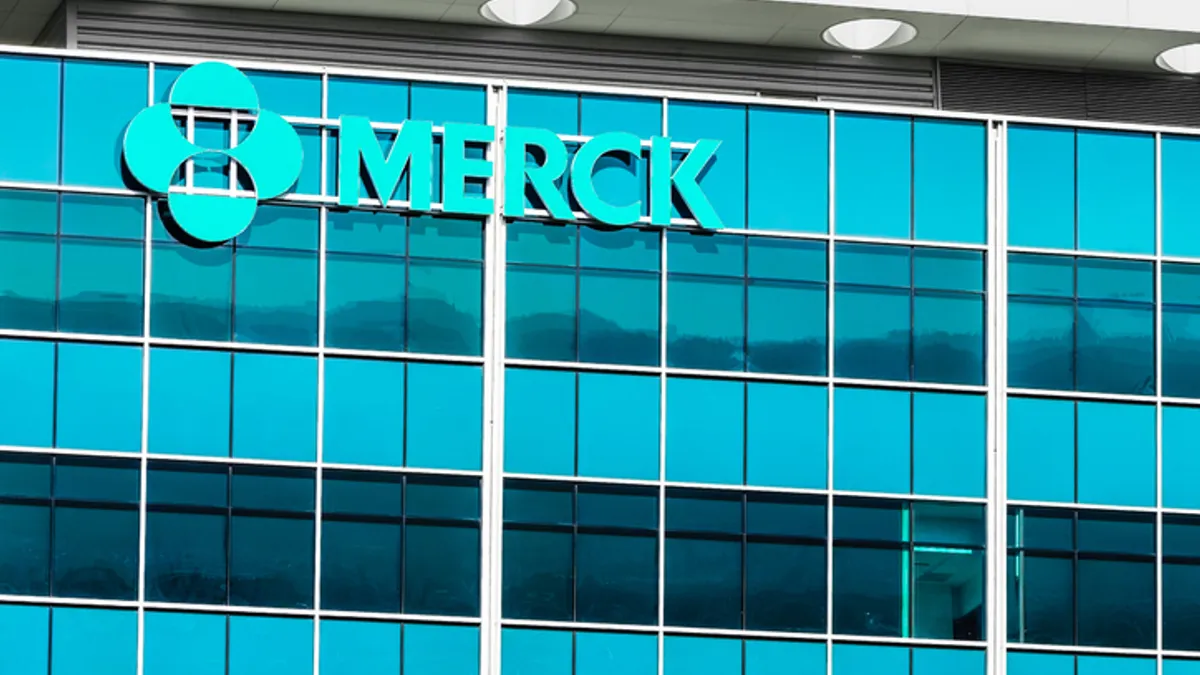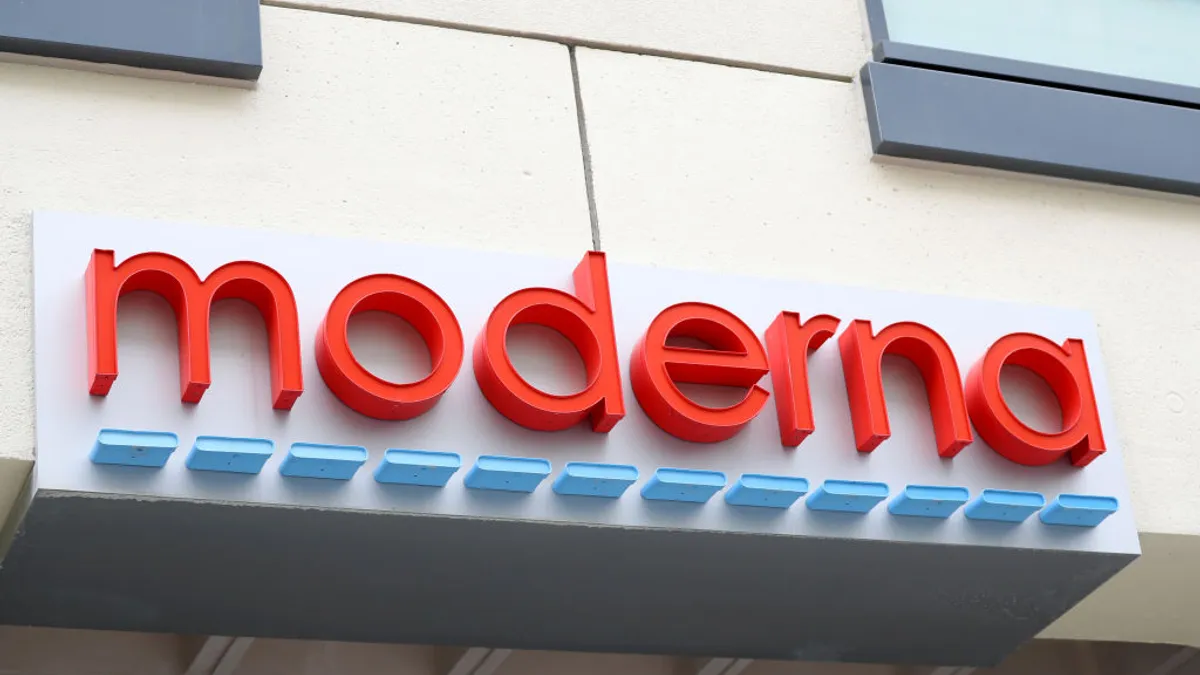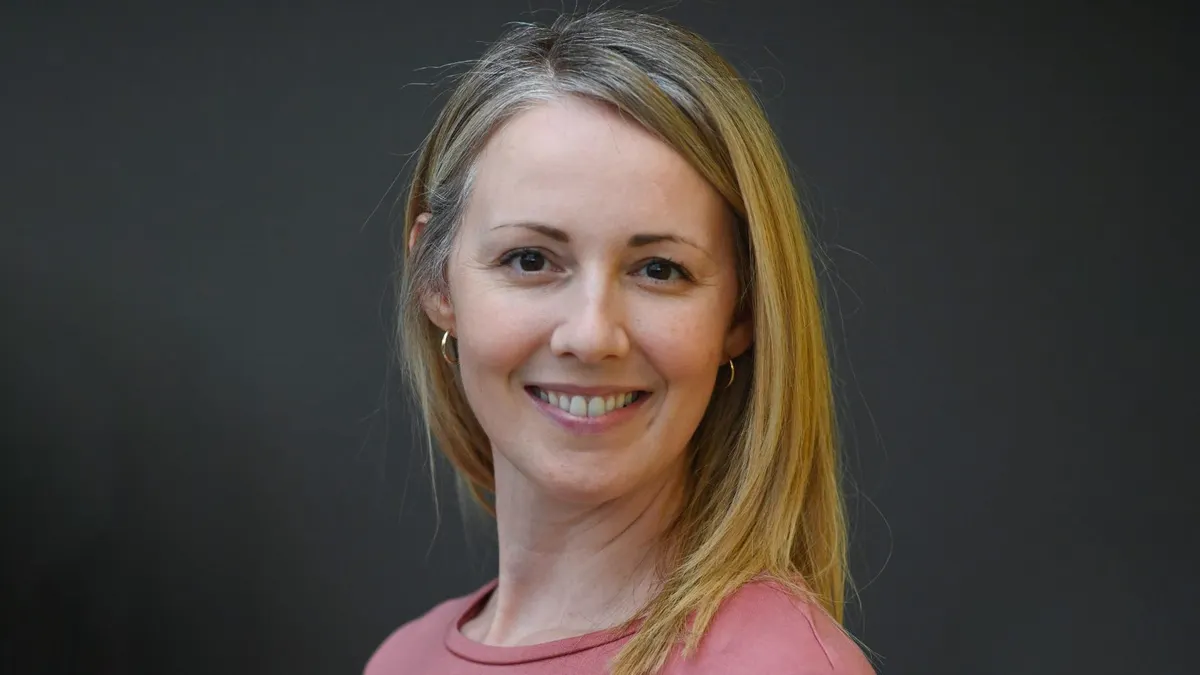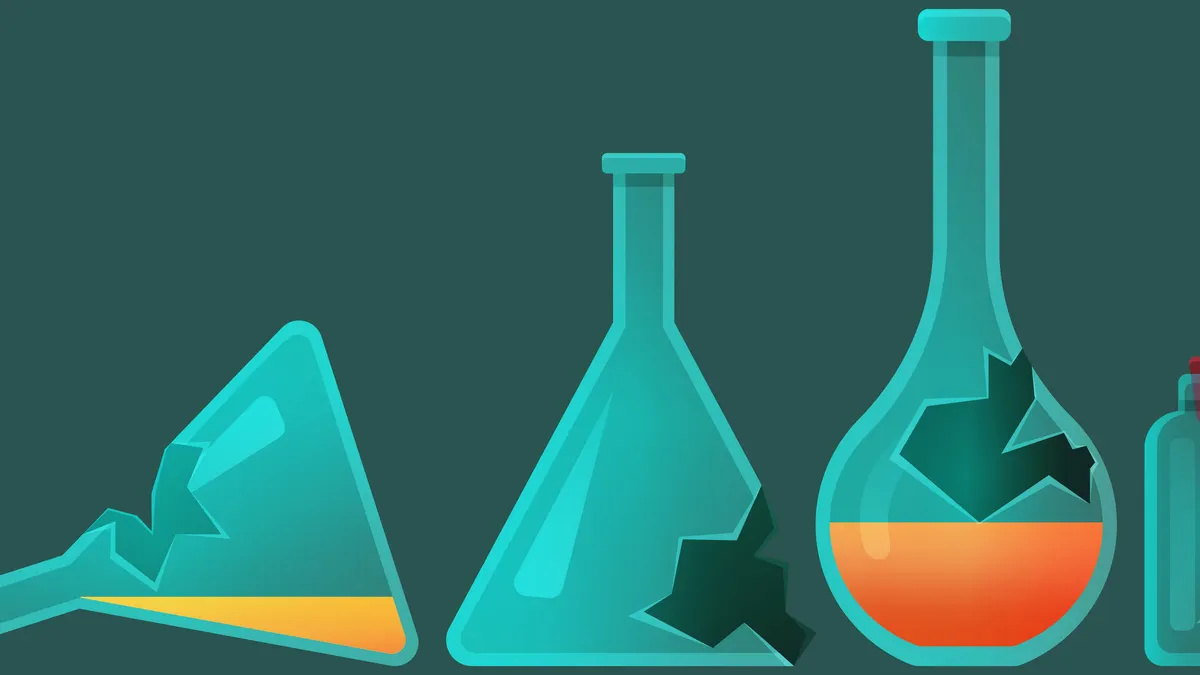Diagnostics companies are having trouble escaping the shadow cast by Theranos, the blood testing biotech that failed in spectacular fashion. That challenge is already facing the new diagnostics startup Haemanthus — and it hasn’t even emerged from stealth.
Of course, it doesn’t help that Haemanthus is led by the partner of disgraced Theranos founder, Elizabeth Holmes, who’s serving 11 years in a federal prison for defrauding investors.
Haemanthus CEO Billy Evans, who has two children with Holmes, is in fundraising mode for the startup, according to reports this week from NPR and The New York Times, which cited marketing materials and anonymous sources.
Haemanthus, which translates to “blood flower” in Greek, is developing a device it calls the “future of diagnostics” that will test blood, saliva and urine, initially to be used in veterinary medicine. Prototype images of its tech published by The New York Times showed a compact box resembling the device Theranos created. Haemanthus’ device will reportedly leverage Raman spectroscopy and AI sensors to test the materials.
The company is hoping to rake in $50 million to advance its R&D, but has also raised eyebrows, it admitted in a post on X.
“We’re Haemanthus. Yes, our CEO, Billy Evans, is Elizabeth Holmes’ partner. Skepticism is rational. We must clear a high bar,” the post reads.
Holmes was convicted of lying to investors by falsely claiming Theranos’ device could quickly run a slew of tests with a pinprick of blood, an approach that would revolutionize the field by providing a much faster and far less invasive option for patients.
Haemanthus claims its technology will detect and qualify glucose and hormone biomarkers in seconds while identifying cancer and infections through deep learning models, according to reports.
Companion diagnostics — especially those that pinpoint genetic biomarkers — are playing an increasingly important role in the pharma industry as it shifts to developing more personalized medicines. Drugmakers are also turning to diagnostic and biomarker tests to make clinical trials more efficient by identifying targeted patient populations.
During Holmes’ tenure at Theranos, major pharma companies, including Pfizer, explored using its tech in drug trials before a whistleblower exposed it didn’t work.
While Holmes’ role at Haemanthus is unclear, the SEC banned her in 2018 from serving as a director or officer at a public company for 10 years. And if Haemanthus officially gets off the ground, it will face competition — along with ongoing opportunities — in a market that’s shifted since Theranos fell from grace.
Up-and-comers in blood testing
Several companies are making strides introducing less invasive blood draws that leverage capillary testing.
Becton, Dickson and Co. has struck several pharmacy partnerships for its FDA-cleared MiniDraw test. The handheld device collects fingertip capillary blood samples and can be used by health care workers without traditional phlebotomy training.
The company recently released data demonstrating that a few drops of blood obtained with its device produced test results as accurate as a vial taken from a vein for common assays related to wellness checks and chronic disease management.
BD also announced a partnership last year that marries its device with Babson Diagnostics’ BetterWay technology, which collects and prepares samples.
While Theranos aimed to develop a device that would conduct tests on the spot, BD and Babson’s tech require outside labs to process the blood samples.
“Babson’s strategy is to enable pharmacies to collect small capillary samples, but then create a way to stabilize and transport them to a proper laboratory where they can be run on proven equipment and overseen by medical professionals,” Eric Olson, Babson’s founder, chairman and chief operating officer, told PharmaVoice after the company cleared a key FDA hurdle in 2023.
Improving the ease of use for patients who might delay getting critical blood draws to avoid needles could be a disruptive change to the market.
“Our core business is routine testing, where we’re concerned with making a solution that gets 40% of people [who] skip their routine blood tests to get their blood work done, which is critical to their care,” Olson said.
Babson began rolling out its testing device at pharmacies across Austin, Texas, last year, and appointed a new president and chief commercial officer this month as it works with large health systems and providers to expand its reach nationwide. The company has also begun to “engage” with pharma companies on potential partnerships.
“The advantages of patient-friendly fingertip blood collection in clinical trials are significant,” the company said.
Another biotech called Sight Diagnostics emerged from Israel with a bedside device to screen small blood samples in minutes using digital microscopy and AI. The company went through several fundraising rounds over recent years but then laid off 30% of its staff in 2024, according to Israeli media, and its website suggests it’s restructuring.
Other contenders are demonstrating promising results in the academic realm.
Researchers from University of Colorado Boulder recently reported they’ve developed a way to collect small amounts of blood, isolate particles using sound waves and measure specific biomarkers within 70 minutes — all in a handheld device.
The authors of the proof-of-concept study said they’re working with CU Boulder’s Venture Partners on patent applications while continuing to develop the technology for multiple tests.



















